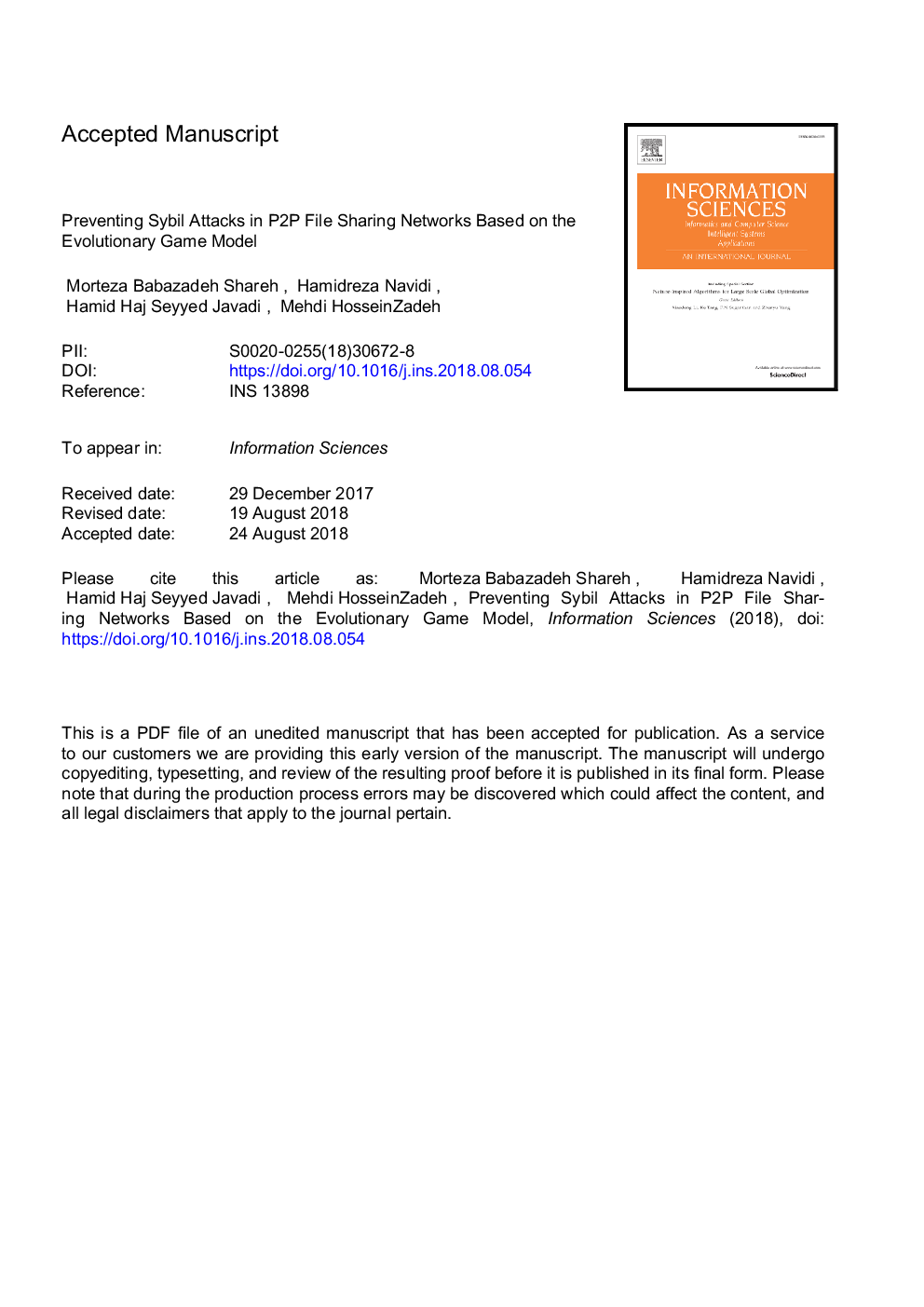| Article ID | Journal | Published Year | Pages | File Type |
|---|---|---|---|---|
| 8953554 | Information Sciences | 2019 | 27 Pages |
Abstract
In cooperative Peer-to-Peer (P2P) networks, a number of users, called Free-riders, try to receive service from others without cooperating with them. Some others, called Sybil nodes, break the rules of the system by colluding and showing fake identities. P2P networks are highly vulnerable to these attacks. In previous research, no method has been suggested to counter these two attacks simultaneously. In the proposed method, a new centrality relationship has been used in the incentive mechanism to deal with both problems at the same time. In this regard, the more varied the nodes receiving service from a peer are, the better the peer reputation will be. The results show that the longer the network life goes on, the more free-riders are detected, and the number of services delivered to the collusive nodes will also be reduced.
Keywords
Related Topics
Physical Sciences and Engineering
Computer Science
Artificial Intelligence
Authors
Morteza Babazadeh Shareh, Hamidreza Navidi, Hamid Haj Seyyed Javadi, Mehdi HosseinZadeh,
